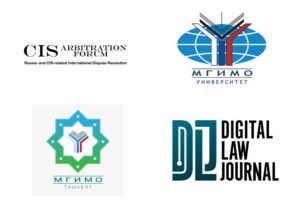Установление содержания иностранного права в судах различных стран: роль эксперта
В рамках Второй межвузовской конференции «Новые вызовы и возможности частного права» 2 апреля в смешанном формате состоялась секция «Установление содержания иностранного права в судах различных стран: роль эксперта». Ее инициатором и модератором выступил доцент кафедры Международного частного и гражданского права МГИМО к.ю.н. Дмитрий Леонидович Давыденко. В работе секции принял участие доцент кафедры к.ю.н., адвокат Андрей Иванович Лобода с выступлением “Перекрестный допрос эксперта по праву в английском суде или перед английскими арбитрами: прикладной взгляд”.
online pharmacy https://salterlewismd.com/wp-content/uploads/2022/09/new/doxycycline.html no prescription drugstore
Спикер дал ряд ценных советов о том, как вести себя эксперту по российскому праву в английском суде, и рассказал, как проходит перекрестный допрос эксперта английским барристером.
Д.ю.н., профессор МГИМО Николай Георгиевич Елисеев подробно раскрыл особенности установления содержания иностранного права с помощью эксперта в судах Германии, в том числе отметив ту специфику, что эксперта обычно назначает сам суд, как правило из числа немецких специалистов по праву соответствующего государства или региона.
К. ю. н., docteur en droit, адвокат Адвокатской палаты Парижа Дмитрий Вячеславович Литвинский рассказал о правилах проведения экспертизы иностранного права во французском суде. Одной из отличительных особенностей является отсутствие проведения допроса эксперта: суд преимущественно делает выводы на основании письменной экспертных заключений, представленных сторонами.
Дмитрий Давыденко в этой связи отметил, что, по его опыту, суду Гонконга также обычно достаточно письменных заключений экспертов сторон. Однако, в отличие от французского подхода, в суде Гонконга предполагается, что эксперт комментирует заключение эксперта, привлеченного другой стороной, отмечает, с какими его выводами он согласен, а с какими не согласен, и почему.
Магистрант кафедры МЧГП Дасел Муксунова провела сравнительно-правовой анализ роли эксперта в установлении содержания иностранного права в судах Англии и США. Она отметила, что в отличие от английского судьи, американский судья уполномочен самостоятельно проводить исследование всех имеющихся источников с целью установления содержания иностранного права, не ограничиваясь сведениями, представленными привлеченными сторонами экспертами.
Адвокат Коллегии адвокатов МЗС Дмитрий Андреев рассказал об особенностях участия и допроса эксперта по праву в международном арбитраже, затронул вопросы выбора и подготовки эксперта к допросу, а также дал советы о том, как наиболее эффективно работать с экспертом, которого привлек оппонент. Он отметил, что арбитры реже ориентируются на результаты перекрестного допроса и склонны чаще, чем судьи, сами задавать вопросы эксперту, чтобы разобраться в незнакомом для них правопорядке. Именно от ответов на эти вопросы нередко зависит исход дела.
online pharmacy https://salterlewismd.com/wp-content/uploads/2022/09/new/symbicort.html no prescription drugstore
В заключение Дмитрий Давыденко отметил, что, несмотря на имеющиеся различия в подходах правовых систем, обращение к эксперту – лицу, сведущему в праве соответствующей юрисдикции – является, пожалуй, наиболее эффективным способом установления содержания иностранного права.
С видеозаписью выступлений (на русском языке) можно ознакомиться по ссылке.
On April 2, a roundtable “Establishing the content of foreign law in the courts of various countries: the role of an expert” took place in a mixed format. The event formed part of the Second Interuniversity Conference “New Challenges and Opportunities of Private Law”. Its initiator and moderator was Dmitry Davydenko, Associate Professor of the Department of Private International and Civil Law of MGIMO, Ph.D. in Law.
Associate Professor of the same Department, Ph.D. in Law Andrey Loboda took part in the work of the section with a speech “Cross-examination of a legal expert in an English court or before English arbitrators: an applied view”. The speaker gave a number of valuable tips on how to behave as an expert on Russian law in an English court, and told how an expert is cross-examined by an English barrister.
Doctor of Law, professor at MGIMO Nikolai Eliseev detailed the specifics of establishing the content of foreign law with the help of an expert in the courts of Germany. He noted that the expert is usually appointed by the court itself, usually from among German specialists in the law of the corresponding state or region.
Docteur en droit, lawyer of the Chamber of Advocates of Paris Dmitry Litvinsky spoke about the rules for conducting an establishing foreign law in a French court. One of the distinguishing features is the absence of an interrogation of an expert: the court mainly draws conclusions on the basis of written expert opinions submitted by the parties.
Dmitry Davydenko noted in this regard that, according to his experience, the written opinions of the parties’ experts are also usually sufficient for the Hong Kong court. However, in contrast to the French approach, in a Hong Kong court it is assumed that the expert comments on the opinion of the expert involved by the other party, notes which conclusions he agrees with and which he disagrees with, and why.
Dasel Muksunova, a master’s student, conducted a comparative legal analysis of the role of an expert in establishing the content of foreign law in the courts of England and the United States.
online pharmacy https://salterlewismd.com/wp-content/uploads/2022/09/new/amitriptyline.html no prescription drugstore
She noted that, unlike the English judge, the US judge is authorized to independently conduct a study of all available sources in order to establish the content of foreign law, not limited to the information provided by the experts involved.
Attorney of the MZS Law firm Dmitry Andreev spoke about the peculiarities of participation and interrogation of a legal expert in international arbitration. He touched upon the selection and preparation of an expert for interrogation, and also gave advice on how to most effectively work with an expert who was involved by an opponent. He noted that arbitrators are less likely to rely on the results of cross-examination and are more likely than judges to ask the expert themselves questions in order to understand the legal system they are unfamiliar with. The outcome of a case often depends on the answers to these questions.
In conclusion, Dmitry Davydenko noted that, despite the existing differences in the approaches of legal systems, engaging an expert – a person who is knowledgeable in the law of the relevant jurisdiction – is perhaps the most effective way to establish the content of foreign law.












